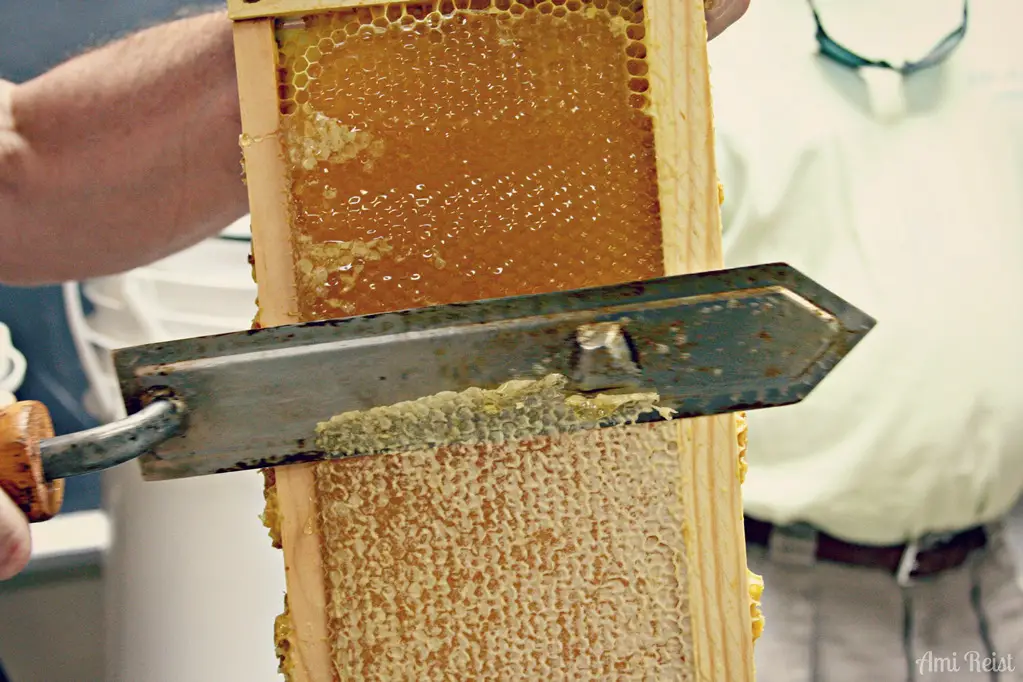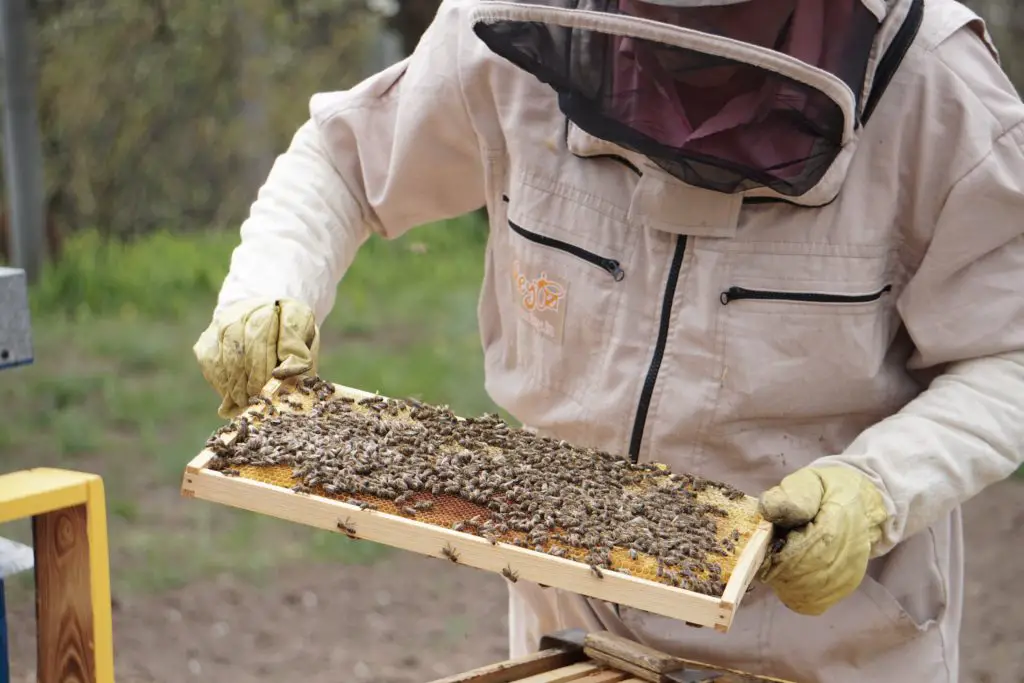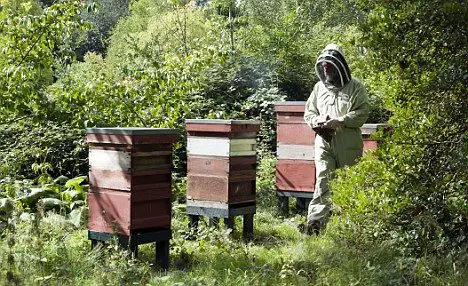Affiliate Disclaimer - As an Amazon Associate I earn from qualifying purchases.
It supports the website. So, Thank you
When you start beekeeping, you will have a lot of things to learn. One thing that surprises a lot of people who are new to the hobby is the viscosity of honey. Typically, you will find that the honey your bees produce is much thicker than that which you can buy in a supermarket. But why is this?
Lower viscosity honey contains more moisture and this means that it will eventually begin to ferment, but other factors, including temperature, can affect this.
With a higher viscosity of honey, you will find that the product lasts much longer. It’s well known that honey has one of the longest shelf lives of all foods, actually never going bad at all when it is properly stored. However, once it ferments, it won’t be any good for eating.
Table of Contents
What Is Viscosity?
An official definition of viscosity is a measure of a fluid’s resistance to flow (source.) But what this essentially refers to is the thickness or density of a liquid.
Low viscosity liquids, such as water, are more easily able to flow. Compare this to something like liquid tar, glue, or indeed, honey which are more highly viscous and you’ll see that these liquids do not flow as easily or smoothly.
Did you know that the most viscous liquid known to man is mercury?
Why Is Viscosity Important In Beekeeping?
You might wonder why the viscosity of your honey really makes much of a difference. Well, there are two main reasons for this.
The first is that, when it comes to harvesting, more viscous honey resists flow and so it’s far easier to harvest. Throughout the whole harvesting process, including extraction, pumping, settling, filtration, and packaging, the honey won’t flow as easily; and this is a good thing as an experienced beekeeper will tell you.
However, viscosity is also important beyond the harvesting process. This is because more viscous honey will stay fresher for longer. You’ve probably heard the rumors that honey never goes bad and there is some truth to this. When kept correctly, honey won’t ever go off so even if you’ve had a jar in the back of the kitchen cabinet for years, it’ll still do nicely for when the moment calls for it.
That said, honey will begin to ferment when it is exposed to moisture and heat. When a batch of honey is less viscous, this is a sign that the liquid contains more water than usual.
The higher the moisture content of the honey, the easier it is for the naturally occurring yeast spores within the liquid to reproduce. The result of this is fermentation. Therefore, it goes without saying that more viscous honey will be more resistant to fermentation.
What Affects The Viscosity Of Honey?
You may notice that the honey produced by your bees is always very viscous or indeed the opposite, very runny. Sometimes, beekeepers will blame themselves for this and believe that it is something that they are doing wrong. But this isn’t the case.
The viscosity of your raw honey is largely down to natural factors. For example, things like the weather, humidity level, soil type, the amount of rain, and the general landscape can all affect how viscous a batch of honey is. Moreover, the type of nectar collected by the bees will play a role in the overall viscosity of the final product.
If you think about the different kinds of honey produced around the world, you’ll notice that they all have varying levels of viscosity. For example, buy honey from somewhere like Taiwan or China and it’ll be one of the runniest you have ever encountered.
With all of that in mind, there are things that the beekeeper can do to make sure the honey is as thick as possible. One of the most common mistakes for new beekeepers is harvesting the honey too soon. If the honeycomb is uncapped and not ripe but you continue with your harvest, you’ll end up with runnier honey.
During the honey-making process, bees will flap their wings which in turn, causes moisture to evaporate from the honey. Once it is concentrated enough, the bees will then use wax to cap the comb. Wait until this has happened for this most viscous honey.
One thing to keep in mind is that runny honey doesn’t mean lesser quality. You can still produce a beautiful batch of less viscous honey that tastes delightful. It just comes with a higher risk of fermentation.
How Can You Tell If Honey Has Fermented?
One of the easiest ways to tell if honey has fermented is to smell it. We all know that signature scent of honey but once the fermentation process begins, it will become much more acidic and the result is a smell not all that dissimilar to wine.
If you don’t fancy sticking your nose into a potentially bad batch of honey then you might check its appearance as this will give you a clue to its condition. A jar of fermented honey will usually have a layer of foam on the top and there will be obvious bubbles throughout the liquid.
For the brave among you, tasting the honey is also a good way to determine whether it has fermented. When it has, you’ll notice a much sharper and more bitter taste that you probably wouldn’t want to eat.

Can You Eat Fermented Honey?
Eating fermented honey won’t typically do you any harm. However, the taste might be quite bad and far from the sweet flavor of a good batch of honey that we’re all accustomed to.
That said, fermentation might be the least of your worries so it’s worth checking to make sure that there aren’t any other problems with the honey before you eat it. If you think that there is a chance the honey may be contaminated with bacteria, then it’s best to discard it and try a fresh batch.
Conclusion
When you harvest your honey, it can be disheartening to see that it isn’t what you expected. While there are several things to consider, viscosity is one of the most important.
While viscosity doesn’t affect the flavor of the honey, many people realize why we prefer thicker honey. So why is viscosity important in beekeeping?
Quite simply, more viscous honey will resist flow better during the harvesting process. Moreover, the thicker the honey, the less chance there is of fermentation so you get a product that lasts longer and tastes better over time.




